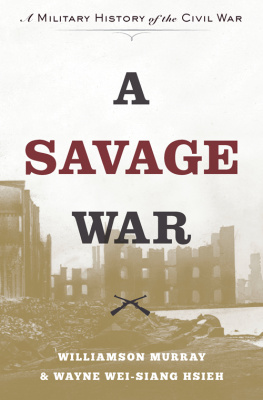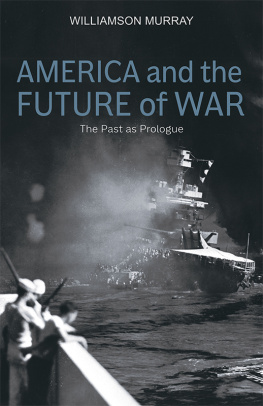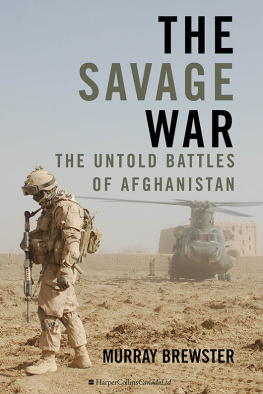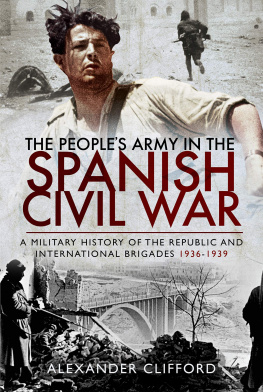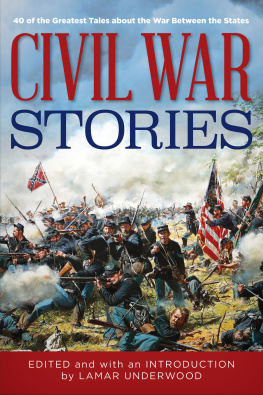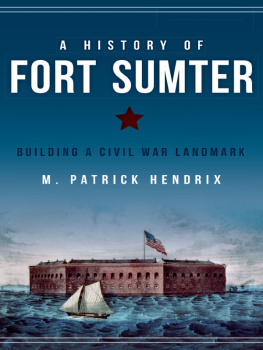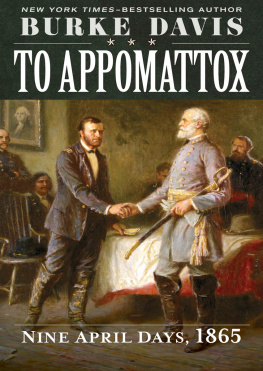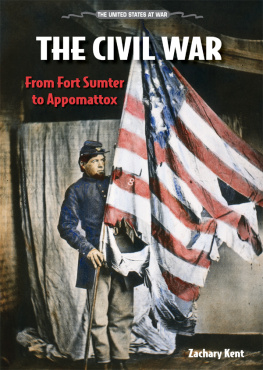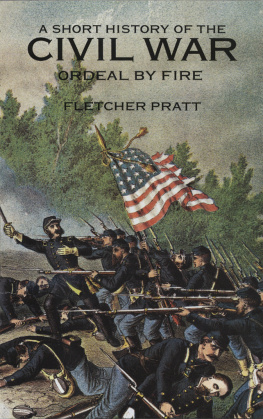A SAVAGE WAR


Copyright 2016 by Princeton University Press
Published by Princeton University Press, 41 William Street, Princeton, New Jersey 08540
In the United Kingdom: Princeton University Press, 6 Oxford Street, Woodstock, Oxfordshire OX20 1TR
press.princeton.edu
Jacket photograph by Alexander Gardner (18211882).
Ruins of Gallego Flour Mills, Richmond, Virginia, 1865.
Culver Pictures / The Art Archive at Art Resource, NY.
Graphic courtesy of Shutterstock.
All Rights Reserved
Library of Congress Cataloging-in-Publication Data
Names: Murray, Williamson, author. | Hsieh, Wayne Wei-siang, author.
Title: A savage war : a military history of the Civil War / Williamson Murray and Wayne Hsieh.
Description: Princeton : Princeton University Press, 2016. | Includes bibliographical references and index.
Identifiers: LCCN 2016008730 | ISBN 9780691169408 (hardback : alk. paper)
Subjects: LCSH: United StatesHistoryCivil War, 18611865Campaigns.
Classification: LCC E470 .M88 2016 | DDC 973.7/3dc23
LC record available at http://lccn.loc.gov/2016008730
British Library Cataloging-in-Publication Data is available
This book has been composed in Baskerville 10 Pro, Clarendon LT Std, and John Sans White Pro
Printed on acid-free paper.
Printed in the United States of America
1 3 5 7 9 10 8 6 4 2
This country will be drenched in blood. God only knows how it will all end. O, it is all folly, madness, a crime against civilization! You people speak so lightly of war. You dont know what you are talking about. War is a terrible thing. You mistake, too, the people of the North. They are a peaceable people, but an earnest people, and will fight, too; and they are not going to let this country be destroyed without a mighty effort to save it. Besides, where are your men and appliances of war to contend against them? The North can make anything it needs; you can make scarcely anything you need. You cant make a steam engine, locomotive, or railway car; hardly a yard of cloth or pair of shoes can you make. Yet you are rushing into war with one of the most powerful, ingeniously mechanical, and determined people on earth right at your doors. You are bound to fail. Only in your spirit and determination are you prepared for war. In all else are you totally unprepared, with a bad cause to start with. At first you will make headway; but as your limited resources begin to fail, and, shut out from the markets of Europe by blockades, as you will be, your cause will begin to wane. If your people will but stop to think, they must see that in the end you will surely fail.
William Tecumseh Sherman (Boyd, Gen. W. T. Sherman)
Christmas Eve, 1860
CONTENTS
MAPS
PREFACE
We have found ourselves interested in the American Civil War from our earliest readings in the past. And that fact explains much about how and why we came to write this book. Yet, the reader should understand that this great war has not been the exclusive focus of our academic interests and writing. The elder of us has spent much of his career as a student of European strategic and academic history in the twentieth century, while taking time off to write a history of the Iran-Iraq War. The other is a student of American military history in the nineteenth century with a much wider perspective than just the military events that occurred between 1861 and 1865, and whose own dissertation advisors were originally trained as historians of the American Southalthough both later became important Civil War scholars. Moreover, both of us have had extensive experience with the American military, one as an officer and consultant, the other as a provincial advisor in Iraq.
Moreover, both of us in our various careers as students and teachers at Yale found ourselves under the spell and writings of Donald Kagan and his examination of the Peloponnesian War and the brilliant account of that catastrophic war by that greatest of all strategic historians, Thucydides. Our Athenian inspiration described his own war as the greatest disturbance in the history of the Hellenes. So too we believe that the Civil War was the greatest disturbance in the history of the Americans and for that reason deserves the closest attention of those who have inherited this great Republic.
A SAVAGE WAR


Introduction
Why another history of a war that has so fascinated so many Americans and led to so much spilled ink over the century and a half since its ending? Quite simply, as with all great events, new perspectives continue to influence our understanding of the war that ripped apart the American Republic in the mid-nineteenth century. The Civil War combined an unprecedented movement and projection of military forces across a continent on a scale made possible by the Industrial Revolution with the psychic mobilization of two contending nations that the French Revolution had foreshadowed. It represented a momentous change in the character of war from the conflicts of the previous century and a half. Nevertheless, the American Civil War forms an integral element in the overall development of the Western way of war, influenced undoubtedly by the peculiarities of geography, politics, economics, and intellectual perceptions that shaped the developing nation at that time.
Thus, one cannot judge the war as an exceptional event separate from the powerful influences of what was also occurring in Europe. Instead its American participants found themselves influenced by the wider patterns of social, political, and military revolutions that for a brief, short-lived period in history gave the Western world global dominance in terms of its military and strategic power. Despite the wars revolutionary aspects, its belligerents, and, most importantly, its leaders, still faced the same inherent uncertainties in armed conflict Thucydides would have recognized over two millennia before and which Clausewitz described as friction several decades before the American conflict.
The far-reaching implications of that era of Western military dominance remain with us to this day, even as that supremacy has faded considerably since the end of the world wars. Indeed, an historically inaccurate belief that Western military dominance came about exclusively from technological changes in warfare continues to haunt American defense policy. Recently, Donald Rumsfelds vision of network-centric warfare sought to remove much of wars uncertainties through the innovations of late twentieth-century information and communications technologies, along with a proliferation of precision-guided munitions embedded in new surveillance technologies. In the aftermath of the 1991 Gulf War, military and civilian pundits even argued enthusiastically that the technological sophistication of Americas military had caused a revolution in war that would alter not only the character of war but its fundamental nature as well.
The penchant of Barack Obamas administration to employ drone strikes and commando raids in place of serious strategic choices follows in Rumsfelds footsteps in its desire to use technology to banish uncertainty from warfare, albeit from a different ideological viewpoint. Both Obama and Rumsfeld, as well as too many others, have subscribed to a special conceit of our erathat technological change provides the primary motive force for historical change. Unfortunately, a version of this belief has remained prevalent among historians who continue to cite the introduction of the rifle musket as the primary factor in explaining why Civil War battles tended to be indecisive and why the war dragged on as long as it did.
Next page
